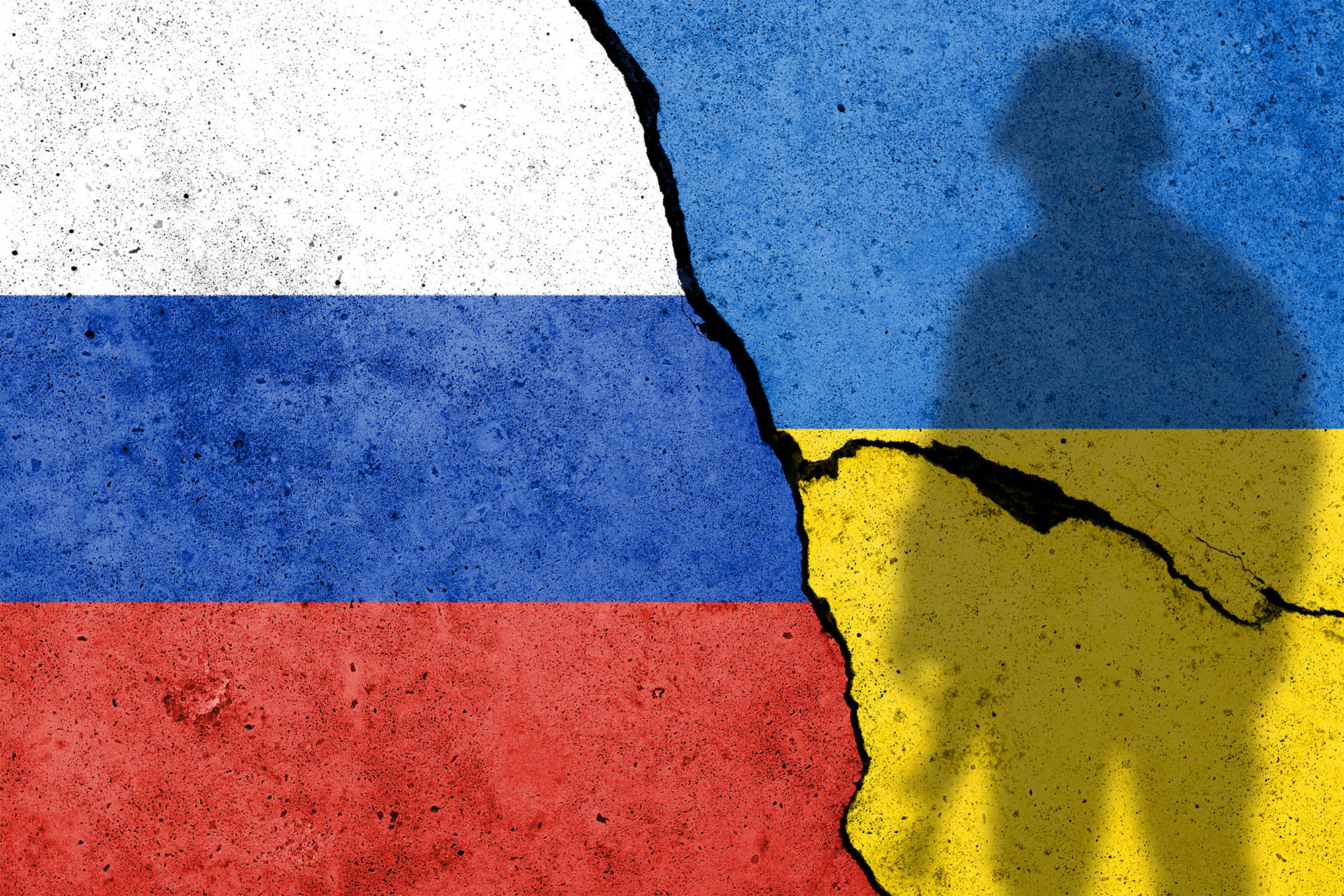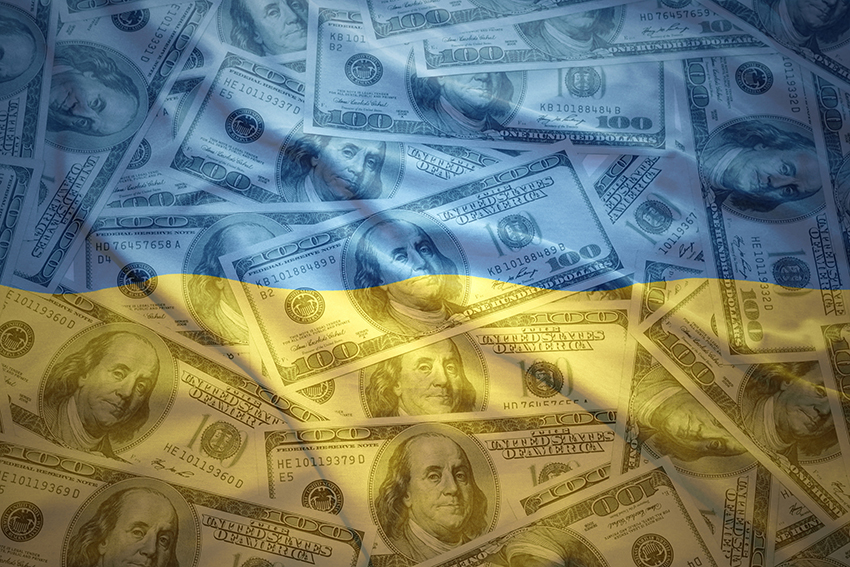The Ukraine War Is A War That Should Never Have Happened; Who’s Keeping It Going And Why?

This article was originally published by Rhoda Wilson at The Exposé.
“This is a war that should never have happened,” Robert F. Kennedy Jr. said at the beginning of the year. “It’s a war the Russians tried repeatedly to settle on terms that were very very beneficial to Ukraine.”
“The big military contractors want to add new countries to NATO all the time,” he said. Why? “Because then that country has to conform its military purchases to NATO weapon specifications which means certain companies … get a trapped market,” he explained.
By Wisdom Land, 2 September 2024
Few people understand what the war in Ukraine means for big business – namely, opportunity. It’s not just the weapons and reconstruction contracts. Ukraine’s vast agricultural lands- among the most fertile in the world – are up for grabs, and American companies like BlackRock are at the front of the line. Robert F. Kennedy Jr. (“RFK Jr.”) deftly and clearly explains.
[You can find a copy of the video above published by RFK Jr. on YouTube HERE and a write-up published by Indian news outlet Times Now World HERE.]
JP Morgan and BlackRock, from Financiers of Destruction to Half-Trillion Dollar “Heroes” of Reconstruction, the Hypocrisy of Reconstruction of Ukraine by the Same Corporations that Profited from the War
JP Morgan and BlackRock, along with consultancy McKinsey & Company, are collaborating with the Ukrainian government to establish a reconstruction fund. The objective of this fund is to attract significant investments for the country’s reconstruction, which could cost between $400 billion and $1 trillion, depending on estimates. This fund, known as the Fund for the Development of Ukraine, will use a “blended finance” approach to mobilize both public and private capital, targeting priority sectors such as infrastructure, climate, and agriculture.
BlackRock and JP Morgan offered their services pro bono to manage this fund, leveraging their expertise in financial markets and debt management. The intention is that this fund can begin to operate fully once the war ends, although planning is already underway and has been discussed at recent international conferences.
The recent partnership between JP Morgan, BlackRock, and McKinsey & Company to rebuild Ukraine highlights the bitter irony of the current geopolitical situation. In a deal that aims to raise hundreds of billions of dollars for the reconstruction of war-torn Ukraine, these American financial giants now position themselves as the economic saviors of a country whose destruction, in part, was facilitated by policies and actions in financial markets that they themselves dominated and shaped.
The United States, through its foreign policies and interventions, has a long history of fomenting instability in various regions of the world. In the case of Ukraine, the situation is no different. From the beginning of the Ukrainian crisis, American interests were clear: to weaken Russia and expand the Western sphere of influence. The irony becomes even more evident when we consider that many of the same financial institutions now being called upon to rebuild Ukraine are those that have profited immensely from armed conflicts and the destabilization of global markets.
JP Morgan and BlackRock are entities deeply rooted in the global financial system, and both have a history of financing military industries and governments that perpetuate conflict. JP Morgan, for example, has a long history of involvement in financing wars and authoritarian regimes around the world. BlackRock, in turn, as the largest asset manager in the world, has stakes in practically all major defense companies, which profit directly from the manufacture of weapons used in conflicts such as Ukraine.
This dichotomy is alarming: the same institutions that financed destruction are now celebrated as leaders of reconstruction. The “fund of reconstruction” proposed for Ukraine is not just a humanitarian effort; it is also a strategic maneuver to ensure that Western capital has control over the country’s future assets and economic infrastructure. The reconstruction of Ukraine, costing up to a trillion dollars, presents a lucrative opportunity for these companies, which are now seen as saviors.
Furthermore, McKinsey & Company’s presence on the project adds an additional layer of criticism, as the consulting firm has frequently been accused of unethical practices and collusion with corrupt regimes. McKinsey’s lack of transparency and controversial practices call into question the integrity of the reconstruction process.
Further reading from The Exposé:
- CEO of BlackRock demands Russian Invasion is used to accelerate the introduction of Government Digital Currency, 31 March 2022
- Is the UK sending military equipment to enrich the oligarchs who own Ukraine? 16 May 2023
- War is really good for business, Ukraine is good for business, 22 June 2023
- US officials benefitting from the Ukraine war are named at UN Security Council, 3 July 2023
- Ukraine will unconditionally surrender and then Russia will void any arrangements BlackRock made with the Zelensky regime, Scott Ritter says, 3 October 2023
- Hidden Truths about the War in Ukraine (Dr. Vernon Coleman), 8 July 2023
- Installed UK Prime Minister commits additional £2.5 billion to Ukraine, 14 January 2024
- BlackRock and others form a group to try to pressure Ukraine to start repaying its debts, on 8 May 2024
- Sickening Profits: The Global Food System’s Poisoned Food and Toxic Wealth, 8 August 2024
- Report details how a handful of Corporations are taking control of the World’s Food Supply, 13 February 2023







